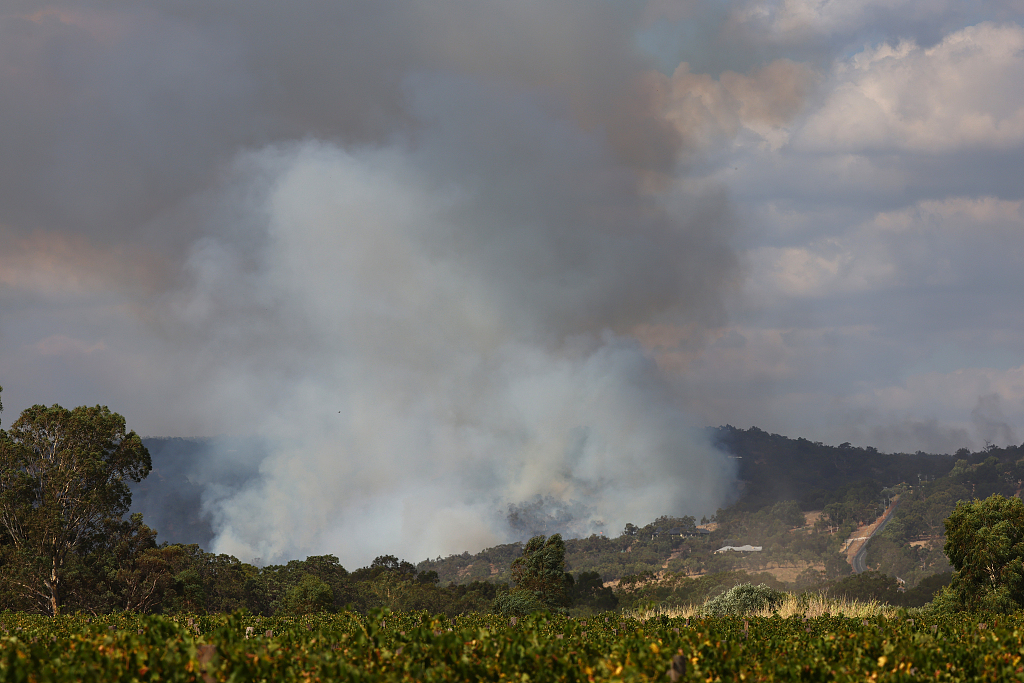Climate change has been found to be an "overwhelming factor" in the increase of Australian bushfires in both frequency and intensity, according to a landmark report from the country's national science agency.
The Commonwealth Scientific and Industrial Research Organization (CSIRO) on Friday published an analysis of bushfire activity in 324,000 square kilometers of forest over the last 32 years.
According to the report, the average area of forest burned annually was 800 percent higher between 2002 and 2019 than from 1988 to 2001.
Since 1988 the average burned area has increased five-fold in winter, three-fold in autumn and 10-fold in spring and summer.

A bushfire is seen threatening Avon Ridge in Brigadoon, Perth, Australia, February 3, 2021. /VCG
A bushfire is seen threatening Avon Ridge in Brigadoon, Perth, Australia, February 3, 2021. /VCG
The report found that factors such as the amount of vegetation, time elapsed since the last fire in an area and hazard burning reduction all impact the intensity of fires but that climate change was the "overwhelming factor" in the increase in frequency and intensity since 1988.
Of the four "megafires" defined as a bushfire that burns more than 10,000 square kilometers in Australia since 1930, three have occurred since 2000.
CSIRO scientist Pep Canadell said it was one of the most extensive studies of its kind ever undertaken.
"In Australia, fire frequency has increased rapidly in some areas and there are now regions in the southeast and south with fire intervals shorter than 20 years. This is significant because it means some types of vegetation won't reach maturity and this could put ecosystems at risk," he said in a media release.
"The results also suggest the frequency of forest megafires are likely to continue under future projected climate change."

Smoke fills the sky as Sydney is enveloped in a thick bank of hazardous bushfire smoke, May 2, 2021. /VCG
Smoke fills the sky as Sydney is enveloped in a thick bank of hazardous bushfire smoke, May 2, 2021. /VCG
The Royal Commission into National Natural Disaster Arrangements, which was called in the wake of the 2019 Black Summer bushfires, found that fuel-load management through hazard reduction burning may have no "appreciable effect" under "extreme conditions" caused by climate change.
The CSIRO report corroborated that finding, questioning the viability of native forest logging as a fire management technique.
"This is happening regardless of anything that we might or might not do to try to stop the fires," Canadell told Nine Entertainment newspapers.
(If you want to contribute and have specific expertise, please contact us at nature@cgtn.com.)
Source(s): Xinhua News Agency

